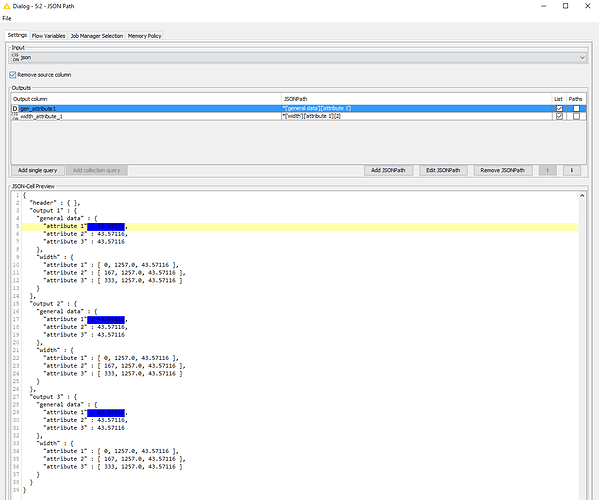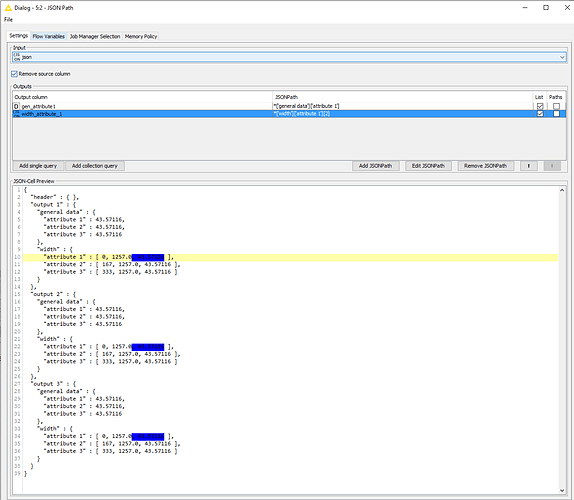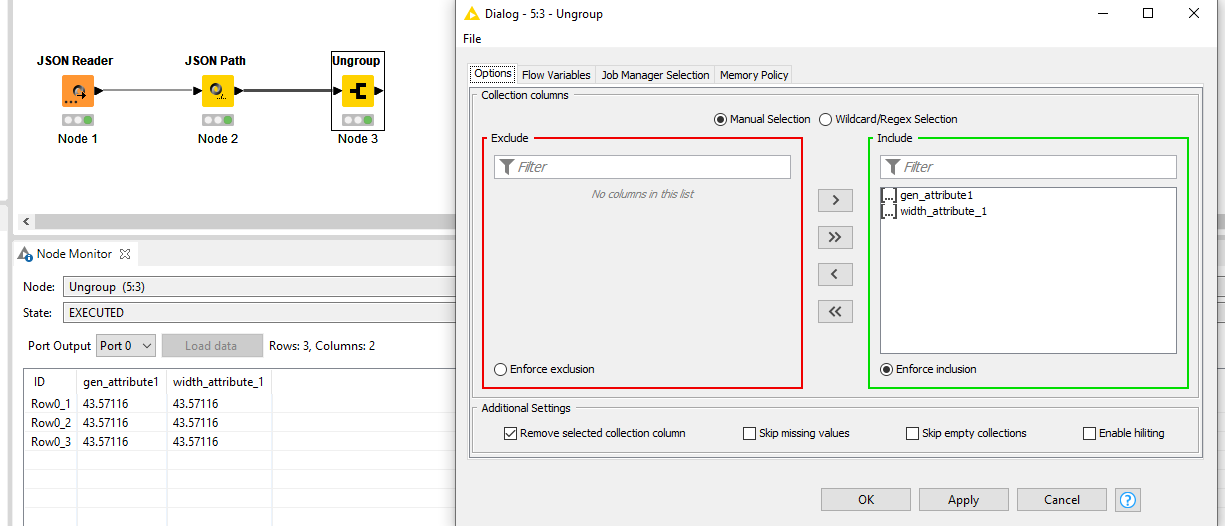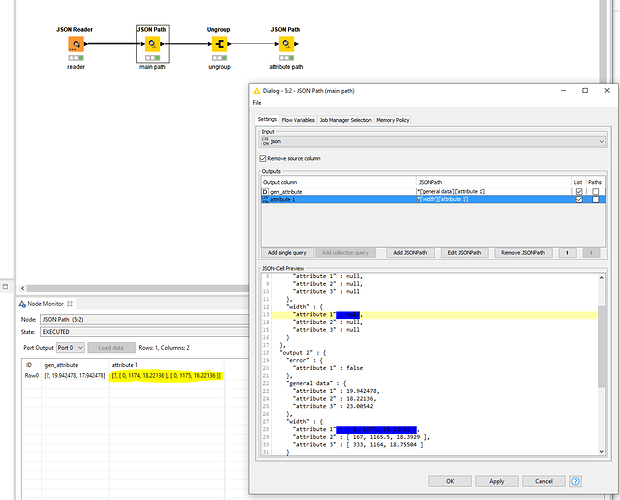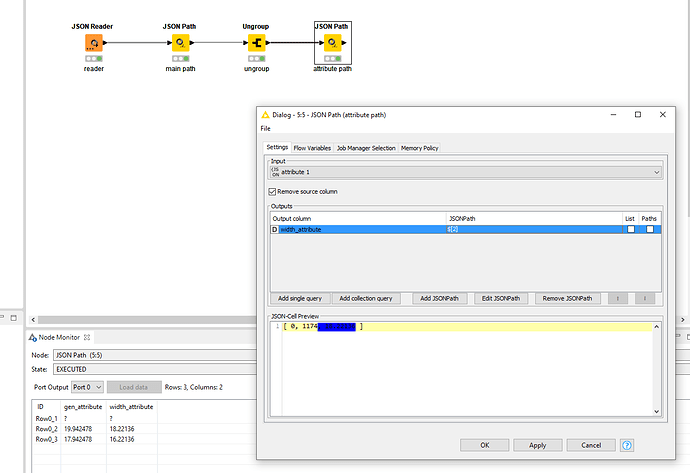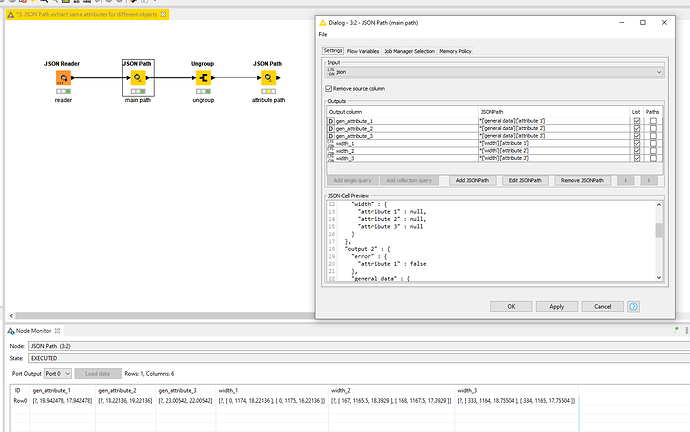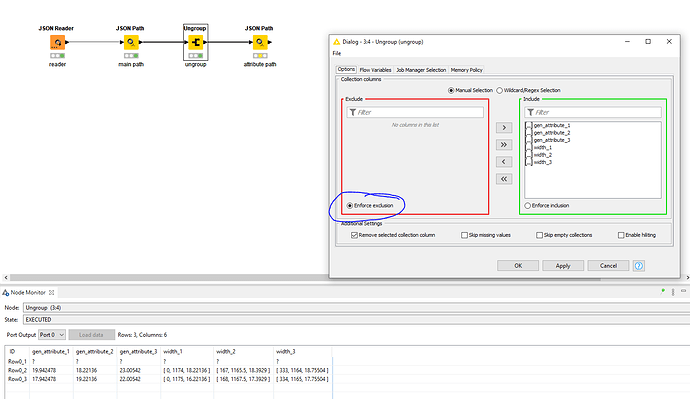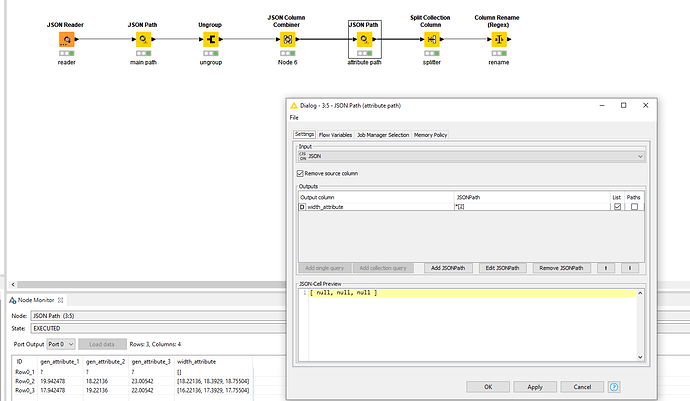Hello everyone,
I want to extract certain information from a JSON file with Knime.
I already figured out which nodes to use:
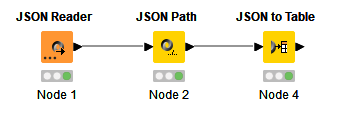
now I am stuck at the correct JSON path.
The JSON structure has a repeating pattern for different outputs.
I would like to get for example the attribute 1 from ,general data" and the third value of attribute 1 from ,width" FOR EVERY OUTPUT.
I already can extract the information for a single output, but I don’t know how to get it for each.
Has anyone got an idea how to solve that? I appreaciate any help very much!
Kind regards,
Fabian
{
“header”: {
…
},
"output 1": {
"general data": {
"attribute 1": 43.57116,
"attribute 2": 43.57116,
"attribute 3": 43.57116
},
"width": {
"attribute 1": [
0,
1257.0,
43.57116
],
"attribute 2": [
167,
1257.0,
43.57116
],
"attribute 3": [
333,
1257.0,
43.57116
]
}
},
"output 2": {
"general data": {
"attribute 1": 43.57116,
"attribute 2": 43.57116,
"attribute 3": 43.57116
},
"width": {
"attribute 1": [
0,
1257.0,
43.57116
],
"attribute 2": [
167,
1257.0,
43.57116
],
"attribute 3": [
333,
1257.0,
43.57116
]
}
},
"output 3": {
"general data": {
"attribute 1": 43.57116,
"attribute 2": 43.57116,
"attribute 3": 43.57116
},
"width": {
"attribute 1": [
0,
1257.0,
43.57116
],
"attribute 2": [
167,
1257.0,
43.57116
],
"attribute 3": [
333,
1257.0,
43.57116
]
}
}
}
